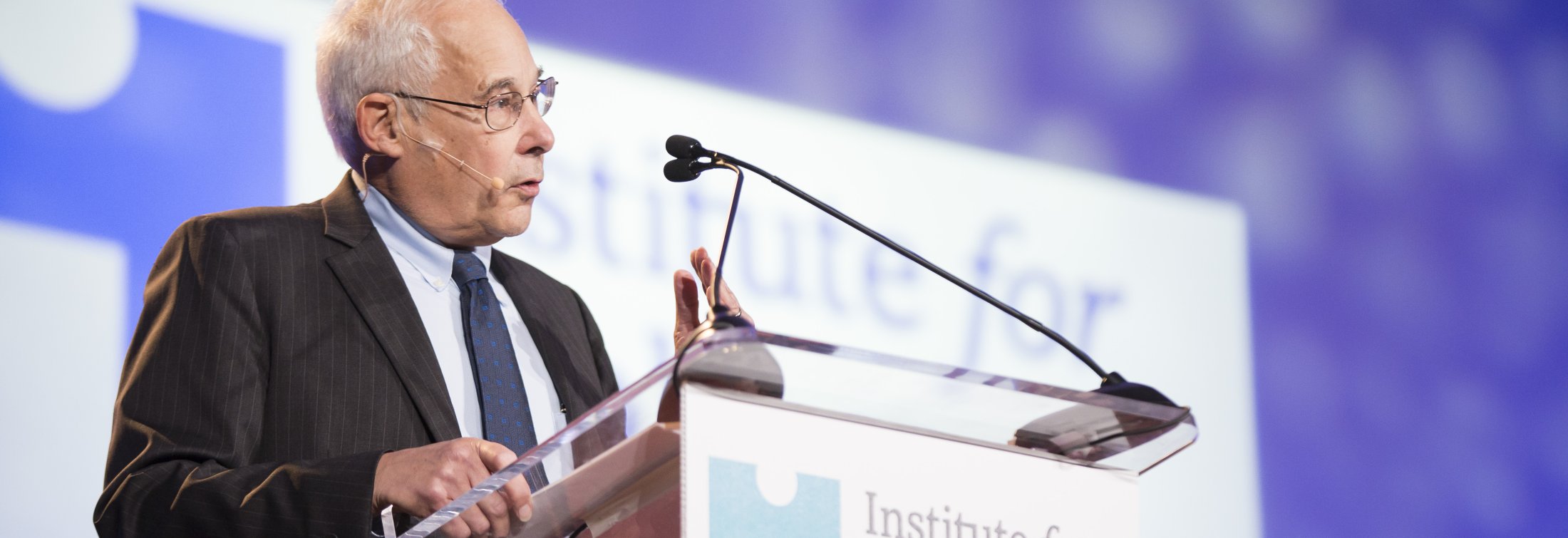Summary
- “We need spaces where people who are not just upset but want to make change in health care can be together.”
In the following interview, conducted in October, IHI President Emeritus and Senior Fellow Don Berwick offers a preview of his 2024 IHI Forum keynote.
What challenges do you observe facing health care professionals today, including within your own family?
My daughter Jessica, my third child, is a third-generation physician in my family. My father was a doctor, I practiced medicine for about 20 years, and now Jessica is at least 10 years into her practice.
Jessica is a hospitalist at Mass General Brigham. She absolutely loves being a doctor; I've never seen someone who enjoys it more. But she's also living in the very real and complicated world of changes in the environment of medicine: Financial pressures, staffing shortages, workforce burnout, rapidly evolving biotechnology, and artificial intelligence entering the scene.
I've been reflecting that it's different from the world in which I was a physician. It doesn't change her love of medicine, but it does pose problems and issues. During my keynote at this year’s Forum, Jessica and I will have a dialogue — an exploration of what’s different, what’s not different.
How do you recommend health systems move forward with improving health and health care?
I use the framework of the Quintuple Aim. First, quality, which is the core of IHI. The second part is population health — I’m spending a lot of time in the policy world now, and IHI [is spending] an awful lot of time on issues of organizing a health care system that actually can pursue health. Third, lowering costs — we're breaking the bank in the US. Costs continue to rise. Most bitterly, individuals are feeling more and more pinch in their wallets through out-of-pocket costs.
Fourth is equity. Jessica is professionally completely focused on equity. I must admit with some embarrassment, I don't think that I was, in the early stages of my practice. [The final part is] clinician well-being. It was always hard to become a doctor and hard to be a doctor. It’s important to understand what it’s like today.
We need spaces where people who are not just upset but want to make change in health care can be together. The job is to make the changes and to help each other do it.
You’re on the Steering Committee of the National Academy of Medicine Action Collaborative to Decarbonize the US Health Sector. What are your hopes for the impact of health care on climate and sustainability?
I just wish we [in health care] could go faster. It can be like swimming through molasses to get changes to happen, but more and more people are talking about it. I'm hopeful that health care will do its share. More generally in the world, we're not acting as urgently as we need to on climate.
At this year’s IHI Forum, you’ll also be speaking with Dr. Anthony Fauci. What are you looking forward to in that conversation?
There's the clinical side. Where are we headed? What’s the next big one going to be? What should we be doing locally and nationally [to prepare for threats to population health]?
I also want to ask him to talk about how he did all this. What is it that lets him lead in such a respectful and courageous and clear way? How did he learn that, and how can we learn from him?
He’s so centered on science and public service. He’s an expert, he approaches [his work] with a sense of confidence. And he's learned to listen to the community in a way that very few others have.
Where do you see the next steps for health care professionals — those who have been at this work for a long time, and those who are newer to the field?
To people who are nearing the end of their careers, I think about how to pay it forward now. I think we have some mentoring to offer to younger people entering the profession.
For the active clinician, stay focused on patients. When I was at CMS [the Centers for Medicare & Medicaid Services], my brother gave me this this to put on my desk. [Ed note: Berwick holds up a plaque that reads, “How does it help the patient?”] I kept it there all the time. I think right now we're really at risk of finances taking over health care, and we need to push back hard on that. For the younger people entering the health care profession, we need to help them find a way to enjoy their work, because if they're not enjoying it, they can't do for patients what the patients need. Something big has to change.
Editor’s note: This interview was edited for length and clarity.
You might also be interested in:
Berwick on the Myth of Free-Market Health Care
IHI Forum 2023 Keynote Address - Don Berwick
Tembi Locke, Writer and Advocate, on Love, Loss, and Creating Healing Spaces
